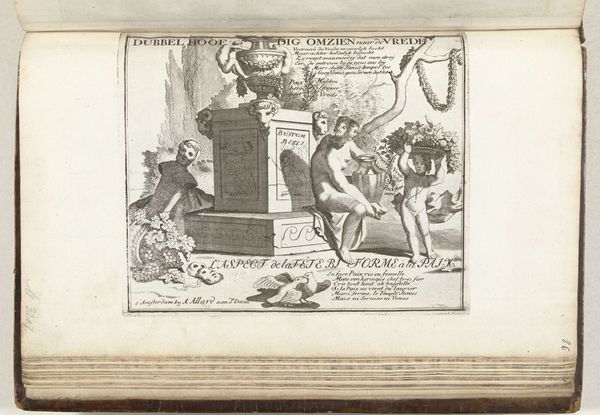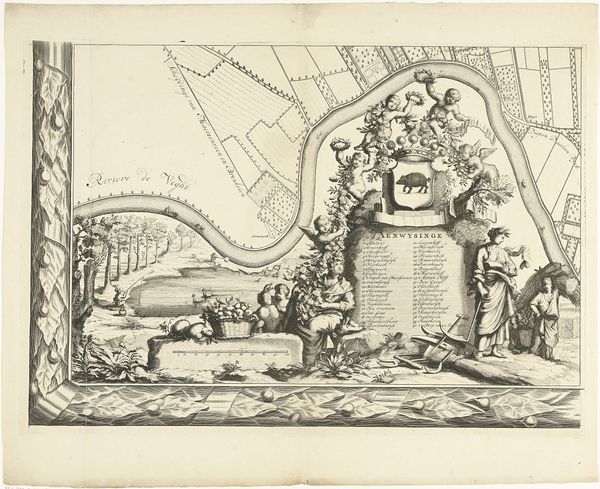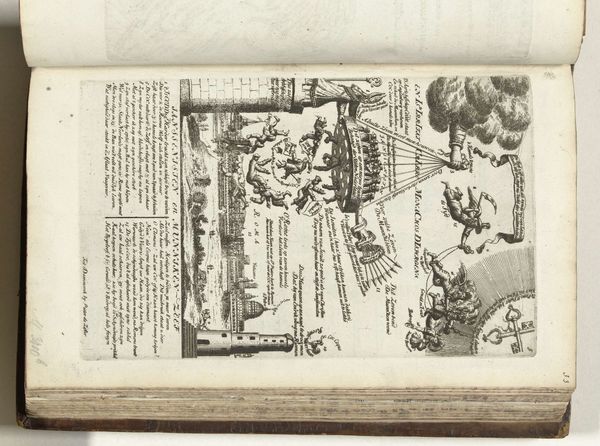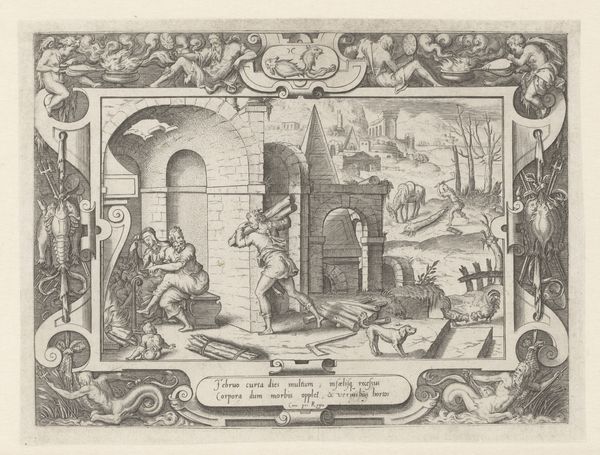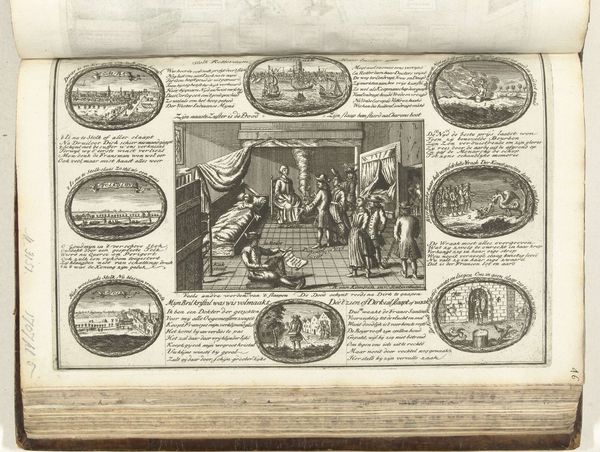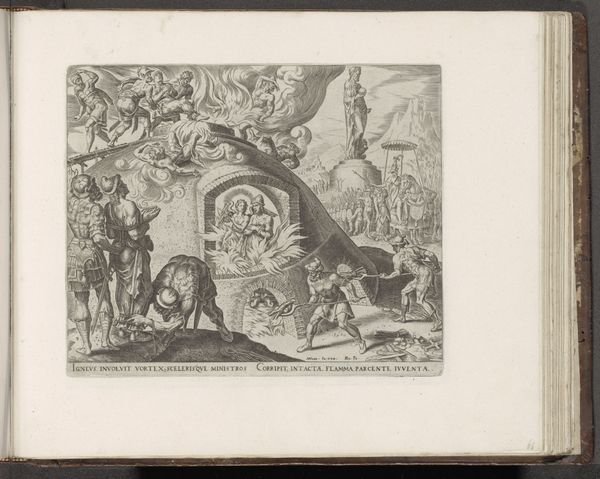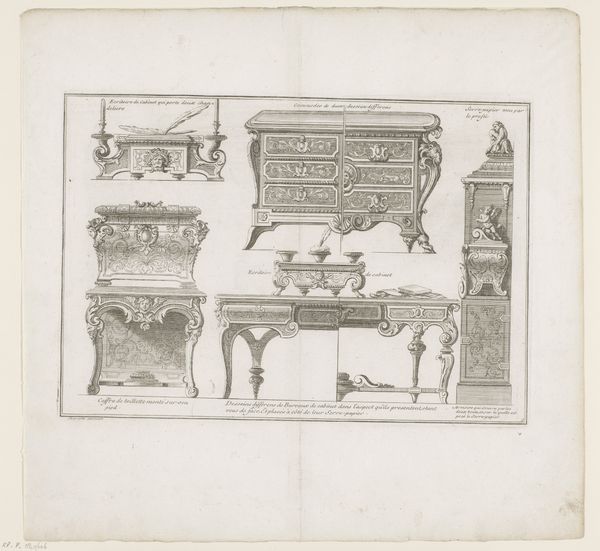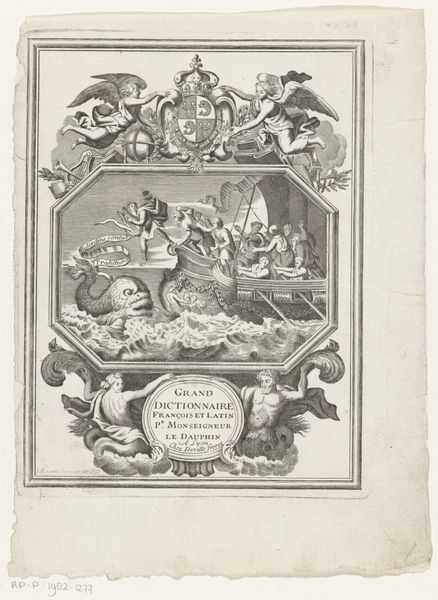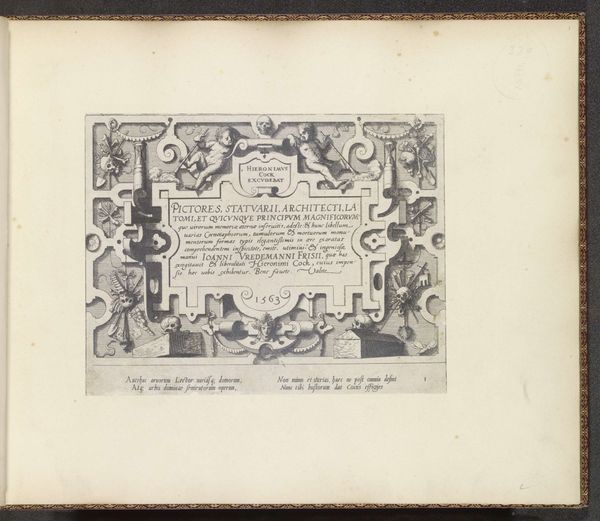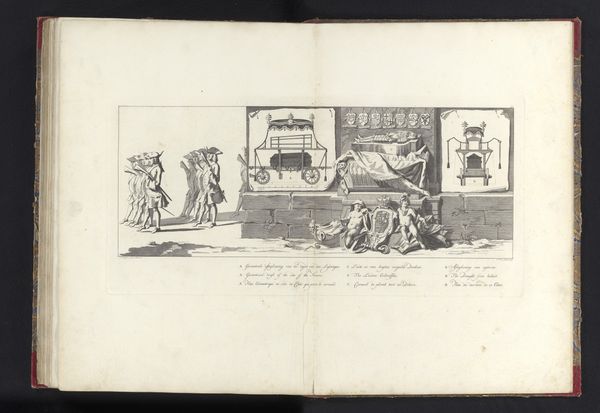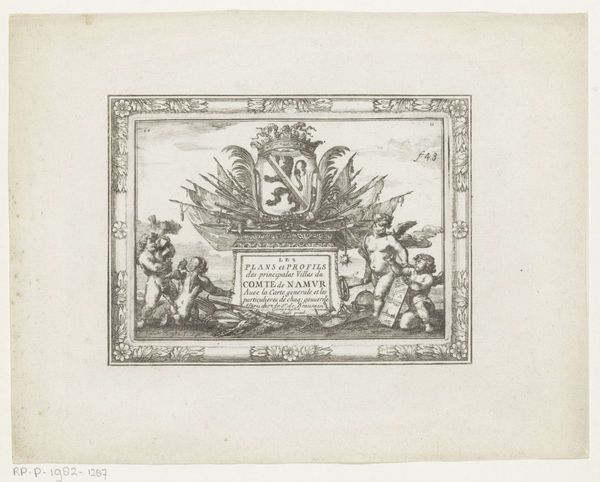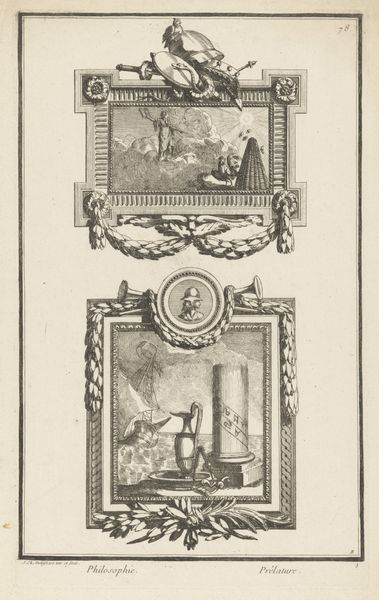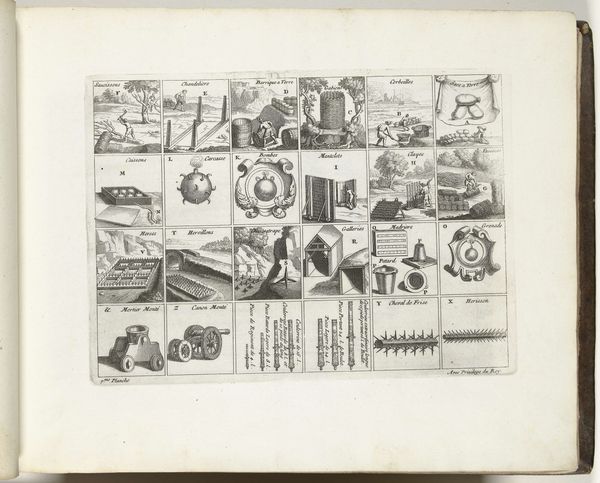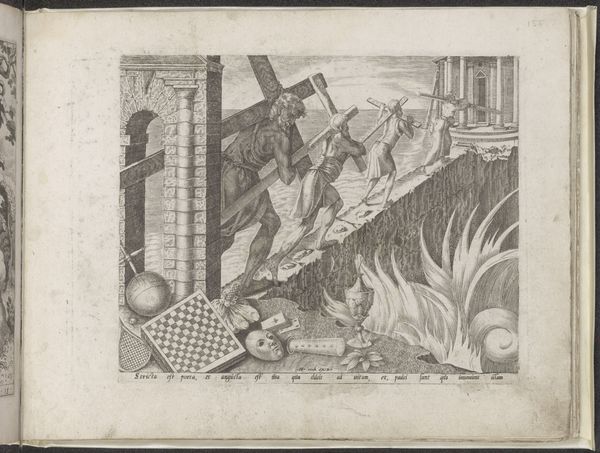
print, engraving
#
allegory
#
baroque
# print
#
history-painting
#
engraving
Dimensions: height 200 mm, width 315 mm
Copyright: Rijks Museum: Open Domain
Abraham Allard created this etching titled "Allegory on the Peace of Utrecht" in 1713. The composition is dominated by a structured, rectangular plinth, adorned with dense foliage, which creates a stage for allegorical figures. Its monochrome palette amplifies the detailed lines and textures, evoking a sense of solemnity. The plinth, inscribed with commemorative text, acts as a formal device, separating the earthly realm from the elevated concepts of peace and truth. This structure, seemingly stable, is destabilized by the dynamic arrangement of objects at its base. Here, the broken urn and scattered musical instruments hint at the disruption and discord that precede peace. Allard uses a semiotic system of signs to interpret the visual components; the angel hovering above bearing a wreath of laurel, the fruits, and the figures seated atop the plinth, all serve to reinforce the promise of harmony after conflict. The overall effect is a carefully constructed argument about the nature of peace. It suggests that peace is not merely the absence of war, but a complex negotiation of truth, justice, and memory.
Comments
No comments
Be the first to comment and join the conversation on the ultimate creative platform.
